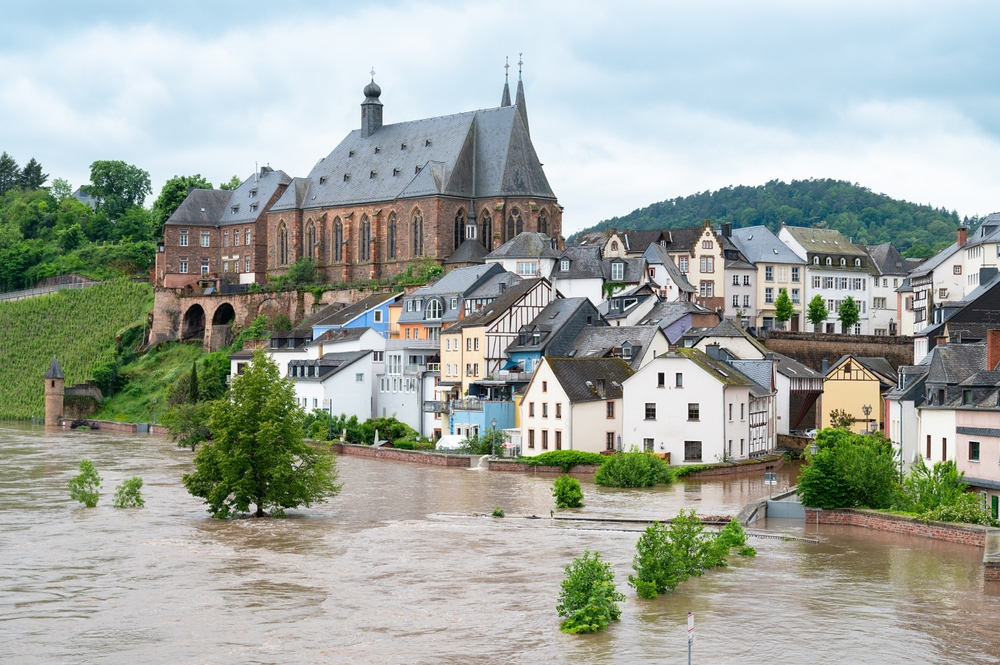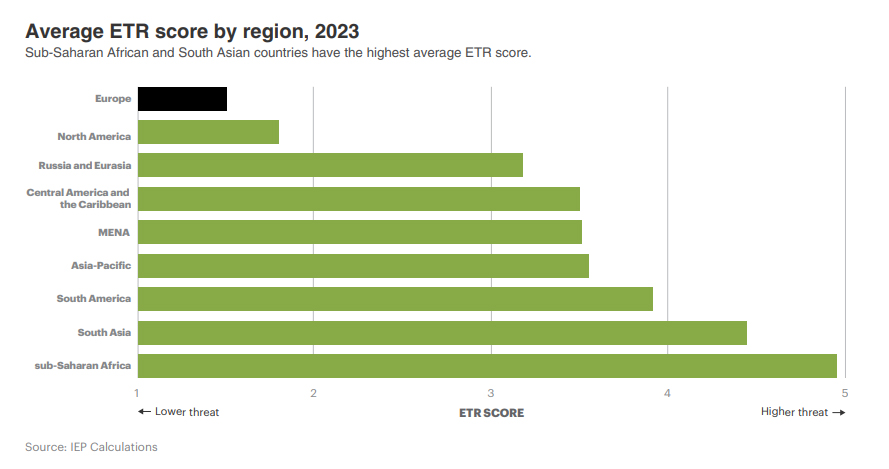This article examines the key factors contributing to the current crisis and its wider implications, drawing on insights from the Institute for Economics & Peace’ Ecological Threat Report (ETR) 2023.

The severity of the flooding is evident in both Poland and the Czech Republic. In Poland’s southwestern Opole region, the town of Glucholazy has seen its local river breach its banks, leading to widespread inundation. Polish Prime Minister Donald Tusk reported the evacuation of 1,600 people in the Klodzko district of Lower Silesia, underscoring the gravity of the situation.
In the Czech Republic, the bursting of a dam in the South Bohemia region has heightened the crisis. Environment Minister Petr Hladik warned about the risk of flash floods due to saturated ground conditions, pointing to the compounding nature of the threat.
The rainfall totals are particularly striking. Lysa Hora in the western mountains of the Czech Republic has recorded 288mm of rain since Thursday – equivalent to roughly three months’ worth of precipitation in just three days. This extreme rainfall has led the Czech Ministry of the Environment to classify Storm Boris as a 1-in-50-year event.

This flooding event in Central Europe demonstrates the complex interplay between meteorological factors, infrastructure vulnerabilities, climate change, and cross-border challenges in managing extreme weather events. These occurrences are part of a broader global pattern of increasing ecological risks.
The flooding has exposed vulnerabilities in local infrastructure and emergency response systems. In Wroclaw, Poland’s fourth-largest city, residents of high-rise buildings have been forced to use staircases due to the precautionary shutdown of lifts. This highlights the cascading effects of flood risks on urban infrastructure.
The widespread power outages affecting 17,000 people in parts of Poland, coupled with disruptions to mobile phone and internet services, point to the potential for flooding to cripple critical communication networks. The Polish government’s decision to employ Starlink satellites for communication underscores the need for robust, flood-resistant communication systems.

While individual weather events cannot be directly attributed to climate change, the World Weather Attribution Network has noted an increasing likelihood and intensity of such flooding events in Europe due to a warming climate. This aligns with findings from the ETR, which notes that the number of natural hazards, including floods and droughts, has tripled over the last four decades and is likely to continue growing.
The ETR provides a broader context for understanding events like Storm Boris. It reports that over 1.8 billion people globally live in areas at severe risk from natural disasters, defined as a strong chance that over five percent of the population will be impacted by a devastating natural hazard. While Europe generally faces lower ecological threats compared to other regions, the current flooding demonstrates that the continent is not immune to such risks.
The report also emphasises the importance of societal resilience in coping with ecological threats. Countries with high levels of Positive Peace, a measure of societal resilience, are better equipped to manage and recover from natural disasters. Countries with very low levels of Positive Peace have a fatality rate seven times higher than those with very high levels of Positive Peace after experiencing a natural disaster.

While most European countries score well in Positive Peace metrics, the current crisis suggests that even resilient societies can be severely impacted by extreme weather events. This underscores the need for continued investment in resilience-building measures, even in developed regions like Europe.
The transboundary nature of the flooding also highlights the need for coordinated responses across national borders. The ETR stresses the importance of international cooperation and systemic approaches to addressing ecological threats. It recommends integrated structures that combine various functions such as health, food, water, refugee relief, finance, agricultural, and development support.
The full economic toll of Storm Boris is yet to be determined, but the disruptions are already evident. The cancellation of football matches in the Czech Republic’s top two leagues is just one small example of the storm’s impact on daily life and economic activities. The ETR provides us with a framework for understanding the potential long-term economic impacts of such events. It notes that ecological threats can exacerbate existing social and economic vulnerabilities, potentially leading to increased poverty, food insecurity, and even conflict in severely affected areas.